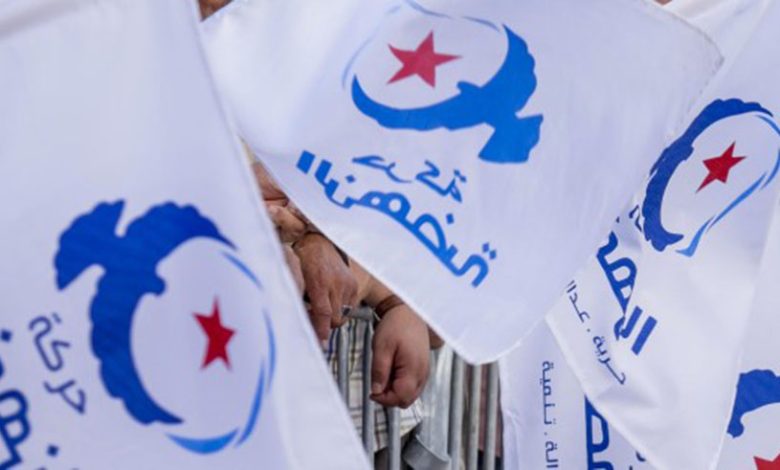Tunisia – Money laundering threatens to dissolve Ennahdha movement forever

Despite the successive losses of the Brotherhood organization in Tunisia, Ennahdha members continue to threaten Tunisia’s national security in response to the revelation of their corruption and the presence of their leaders before the judiciary.
Ennahdha is facing charges of foreign funding and suspicious political money received throughout its career. After opening investigations into the money spent on election campaigns in past years, a Tunisian court issued a decision to freeze the funds of Rached Ghannouchi, the leader of Ennahdha, and summoned him for investigation on money laundering charges.
International news agencies reported the decision issued by the Financial Analysis Committee in Tunisia, confirming that the anti-terrorism judge had authorized the freezing of bank accounts and financial assets of 10 people, including Rached Ghannouchi and members of his family. The order included Mouaz Ghannouchi, son of the Ennahdha leader and his son-in-law, Rafik Abdessalem, a former foreign minister, and former Prime Bali.
War of suspect money
Since taking over the country, Tunisian President Kais Saied has sought to stop the funding and suspicious funds entering Ennahdha’s coffers; Article 80 of the Tunisian Constitution stipulates that: “If the Court of Accounts determines that a candidate or list has obtained foreign funding for its electoral campaign, it shall order that it pay a fine ranging between ten and fifty times the amount of foreign funding. Members of the list that enjoys foreign funding lose their membership in the Assembly of the Representatives of the People. A presidential candidate that enjoys foreign funding shall be punished by five years in prison. Anyone convicted of obtaining foreign funding for his campaign, whether members of lists or candidates, shall be barred from running in the legislative and presidential elections.
A Dark Future for Ennahdha
In the same context, the Parties Decree in Tunisia in its Chapter XIX prohibits the receipt of funds, directly or indirectly, in cash or in kind, issued by a foreign entity. According to Article 28 of the same Decree, the activity of the political party can be suspended, initially for a period not exceeding 30 days. At a later stage, the party concerned with foreign funding can be dissolved at the request of the Prime Minister. If the charges of foreign funding and money laundering faced by Ghannouchi and the leaders of the movement are proven, they will have direct consequences for the party, as the specialized judge can dissolve the party, and confiscate its funds and property, because the source of the funds is corrupt, and the party’s leadership can be penalized, and the sentences may reach imprisonment.
Complex file
Hazem al-Qusouri, a Tunisian political and legal analyst, said the Brotherhood’s Ennahdha Movement in Tunisia is no different than other Brotherhood organizations in the world, and it always has major financial links, whether announced or parallel, which obliges the Financial Analysis Committee to refer all reports to the public prosecutor so they can say their word in accordance with the law.
He added: Foreign financing remains a complicated file, and presupposes intensive international cooperation to dismantle the complicated financial networks of the Brotherhood, without forgetting the parallel financing channels that impose security and intelligence cooperation at the Arab and international levels to uncover the sources and destination of funding. This presupposes a political commitment and cooperation to defeat terrorism.












